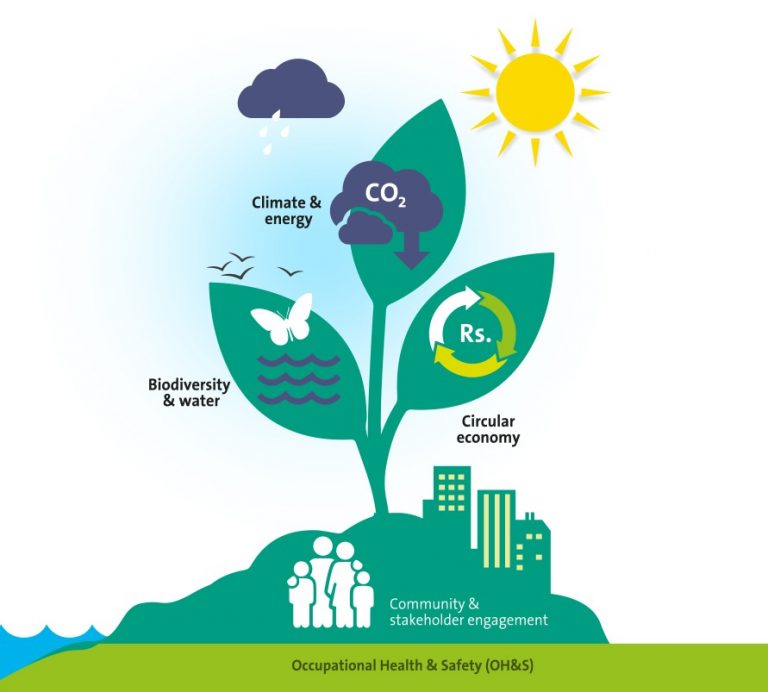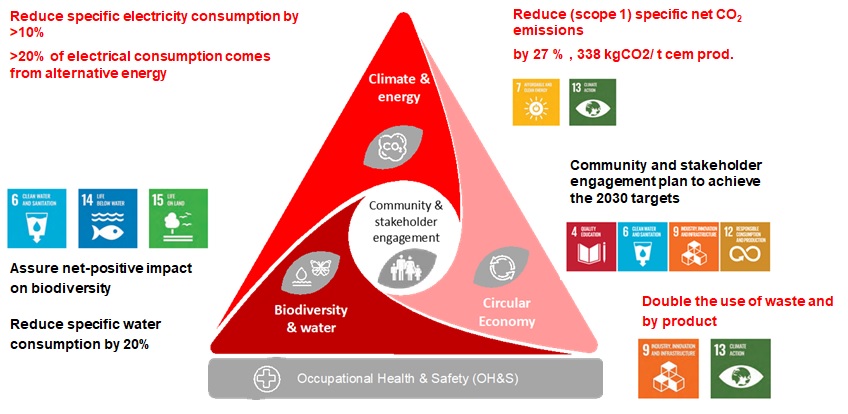Sustainability Ambition 2030
As an industry leader, INSEE Cement wishes to set an example and take definite action to support the Paris Climate Agreement, contributing to the UNFCCC target of limiting global warming to a 2 degree Celcius scenario with a 15% reduction of CO2 emissions from the 2020 baseline value. This ambitious target is supported by multiple initiatives such as the introduction of low carbon cement to the Sri Lankan market with a reduced clinker factor, the gradual discontinuation of Ordinary Portland Cement (OPC) production, and the increase of Thermal Substitution Rate (TSR) by using alternative sustainable fuels. INSEE Cement also aims to reduce its specific electricity consumption by 10%, while sourcing at least 20% of the electricity it consumes from alternative energy sources.

Key Projects:
Introducing Superior Blended / Composite Cement Solutions to the Sri Lankan Market
INSEE Cement Lanka continues to steer the local construction industry towards meeting international benchmarks by introducing innovative cement solutions especially engineered to address the ecological and economic challenges faced with traditional OPC cements. The result of years of research and innovation, INSEE continues to expand on an impressive superior blended and composite cement portfolio, generating some of the lowest carbon footprints currently available in the Sri Lankan market.
Energy Security Plan
Our industrial waste management arm INSEE Ecocycle co-processes renewable alternative fuels such as biomass. It also provides 100% environment friendly disposal methods for other industrial waste such as fabric offcuts, wood waste, paper, cardboard and packaging. It has also turned certain plastics into biofuel, and used this to replace up to 40% of fossil fuel generated energy in cement production. Such alternative sustainable fuels increase INSEE Cement’s Thermal Substitution Rate (TSR) And decreases the use of non-renewable fossil fuels. This also helps decrease the cement manufacturing process’ carbon footprint.
Climate Control
INSEE is taking the following key strategic initiatives to reduce net specific CO2 (scope 1) in the cement manufacturing process: Switching to composite cement (Clinker factor reduction) and Increasing alternative fuel usage (TSR increment). It is also optimising the manufacturing process, using environment friendly equipment, and switching to renewable electrical energy sources such as Solar PV to reduce net specific CO2 in scope 2







